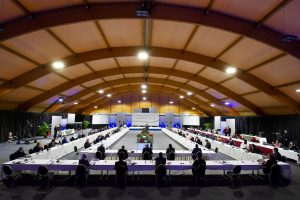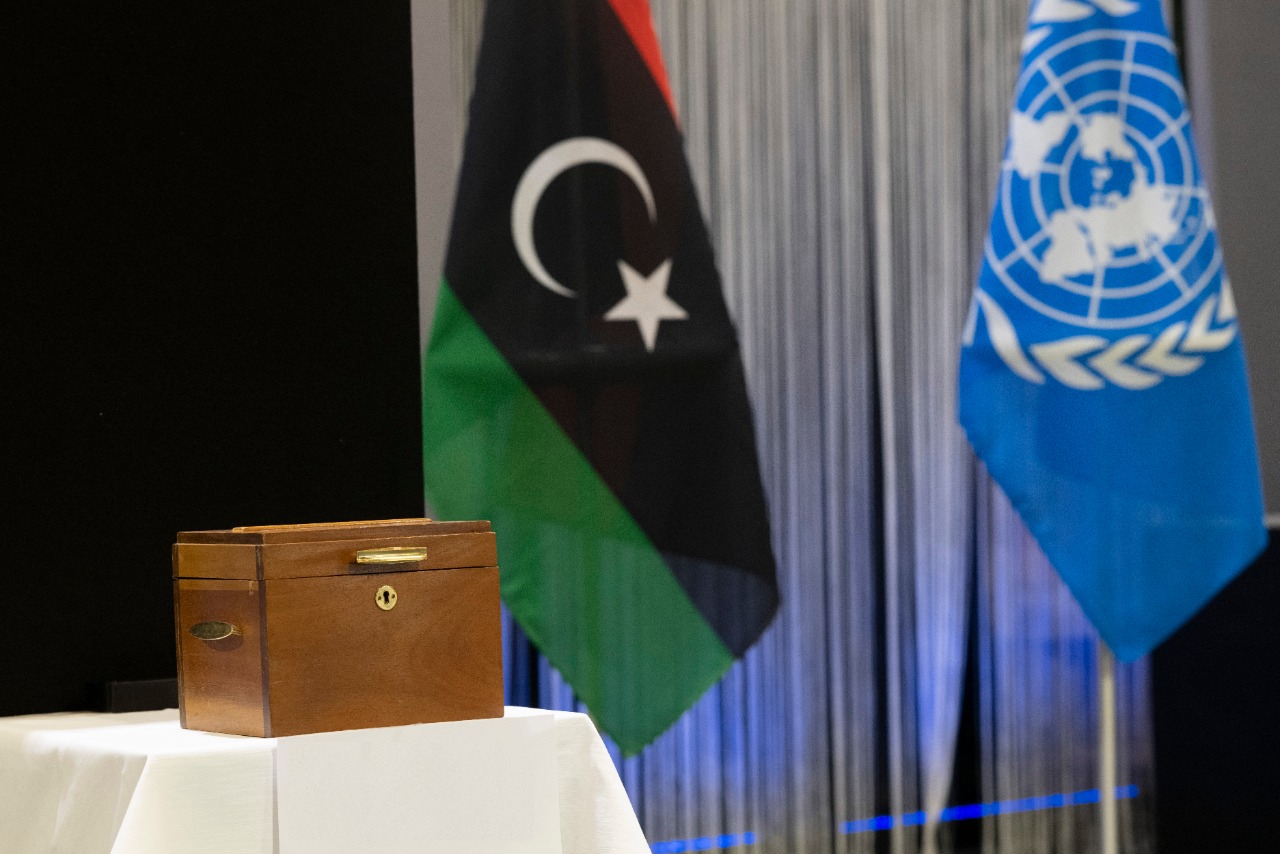By Sami Zaptia.

London, 5 February 2021:
Early today UNSMIL announced the four lists of candidates for the positions of Libya’s three-member Presidency Council and of Prime Minister – Libya’s next temporary, interim, unified government.
UNSMIL said the lists were submitted by the specified deadline and with the required number of endorsements, as stipulated in the selection mechanism adopted by the Libyan Political Dialogue Forum (LPDF) on 19 January.
UNSMIL said it was encouraged by the robust participation in this process and the diversity represented in the composition of the lists.
The lists of candidates, are as follows, in the order received by UNSMIL:
- List 1:
Mohammad Hasan Sleiman Al-Bargathi (President of the Presidency Council);
Ali Abu Al-Hojob (Member of the Presidency Council);
Idriss Suleiman Ahmed Al-Qaed (Member of the Presidency Council);
Mohammad Khaled Adbullah Ghweil (Prime Minister)
- List 2:
Al-Sharif Al-Wafi (President of the Presidency Council);
Abdul Rahman Mohammed Abu Al-Qassem Al-Balazi (Member of the Presidency Council);
Omar Mahdi Aboushrida (Member of the Presidency Council);
Mohammed Abdul-Lateef Al-Montaser (Prime Minister)
- List 3:
Mohammad Younes Menfi (President of the Presidency Council);
Mossa Al-Koni (Member of the Presidency Council);
Abdullah Hussein Al-Lafi (Member of the Presidency Council);
Abdul Hamid Mohammed Dbeibah (Prime Minister)
- List 4:
Aqila Saleh Qwaider (President of the Presidency Council);
Osama Abdul Salam Juwaili (Member of the Presidency Council);
Abdul Majeed Ghaith Seif Al-Nasr (Member of the Presidency Council);
Fathi Ali Abdul Salam Bashagha (Prime Minister)
The LPDF has convened at 9:30 am Geneva time today to vote on the lists. It is being broadcast live.
The required selection threshold is 60% of valid votes. Should no list reach this threshold, a second round will be held to vote on the two lists which obtain the highest number of votes in the first round. The threshold for the second round is 50% + 1 of the valid votes.
Analysis
It is expected that list number four will win the election. It is headed by House of Representatives (HoR) head, Ageela Saleh, who controls the only internationally recognized Libyan parliament – even though only about 20 HoR members support him and meet in Tobruk/Benghazi.
Over a hundred ‘‘opposition’’ members met in Ghadames recently – but Saleh is the de jure HoR head. They were unable to remove him. He is effectively preventing the 2015 Skhirat Libyan Political Agreement (LPA) process from progressing. Under his leadership the HoR since 2014, together with the High State Council, has failed to organize a referendum on the draft constitution, let alone organize a general election to take Libya out of the current interim period.
He is also blamed for appointing Khalifa Hafter and of supporting the war on Tripoli.
Saleh is very much loathed in most of western Libya and certainly in Tripoli for supporting Hafter’s war on Tripoli. If he is elected as head of the Presidency Council, it will be a bitter pill to swallow for many western Libyans.
However, pragmatists see it as a necessary short-term step to get Libya out of its political impasse. Saleh will have to resign his leadership of the HoR if he is elected the new head of the Presidency Council. This leaves hope that his successor will be more acceptable to the majority of the HoR and the Libyan people. It is also hoped that his successor will be able to move Libya’s political process forward to general elections and a fully empowered government.








